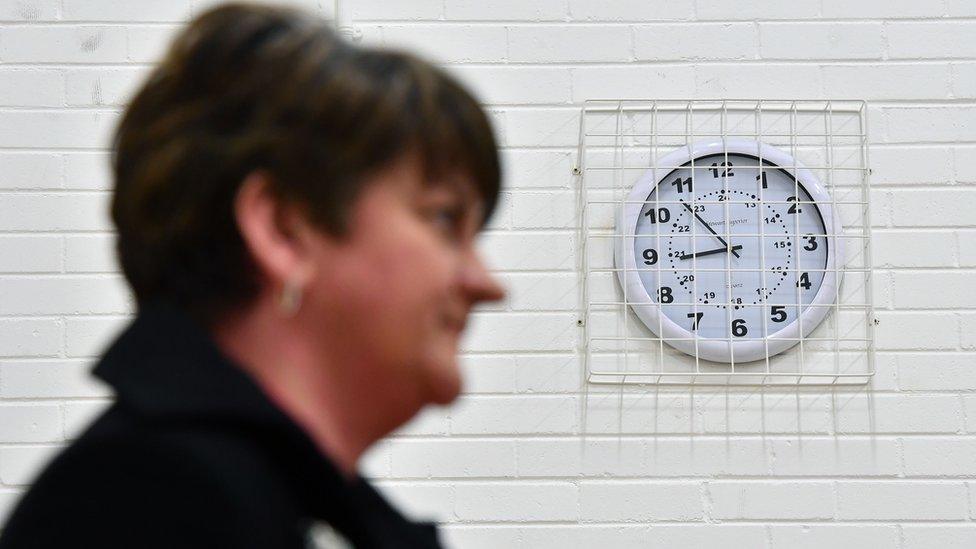Stormont talks on hold until after general election
- Published
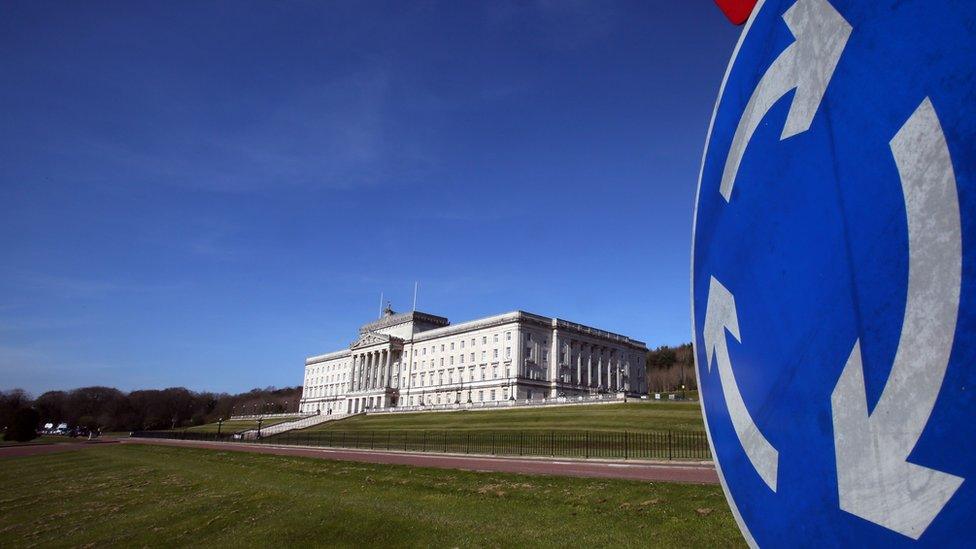
The DUP and Sinn Féin have blamed each other for the failure of talks aimed at restoring power sharing
Talks aimed at restoring the power-sharing executive have been put on hold until the general election is over.
Secretary of State James Brokenshire made the announcement after meeting the main parties and Irish Foreign Minister Charlie Flanagan.
Mr Brokenshire, who extended the talks deadline until 29 June last week, said some progress had been made.
However, he added there were still a number of outstanding issues.
"All the parties involved recognise it is vital devolved government, and all of the institutions established under the Belfast Agreement and its successors, resumes in Northern Ireland as soon as possible," he said.
"Although formal roundtable talks are paused until after the general election, a range of bilateral discussions will continue, with a view to building on progress."
Sinn Féin leader Michelle O'Neill said it had been "a realistic decision" to pause the talks.
She said she welcomed DUP leader Arlene Foster's meetings with representatives of the Irish language-speaking community, which "could bode well for the future".
'Disappointed and frustrated'
UUP leader Robin Swann said he was "both disappointed and frustrated" by the decision.
However, he said: "We'd rather see the progress that has been made 'banked' so we can come back to it after the general election".
SDLP leader Colum Eastwood said the parties had "sensibly" paused the talks process.
He said negotiators were "absolutely up against it", and that there had been "lots of talking around the houses and plenty of shadow-boxing".
'Chaos and cuts'
Alliance leader Naomi Long said the parties had been able to park the process "but we cannot stop the juggernaut of chaos and cuts".
She said they must remember that "after the election we have a very small window to come back and agree to restore devolution".
Meanwhile, former Ulster Unionist Party leader and First Minister Lord Trimble has said devolved government in Northern Ireland could function without an executive and should consider continuing as just an assembly.
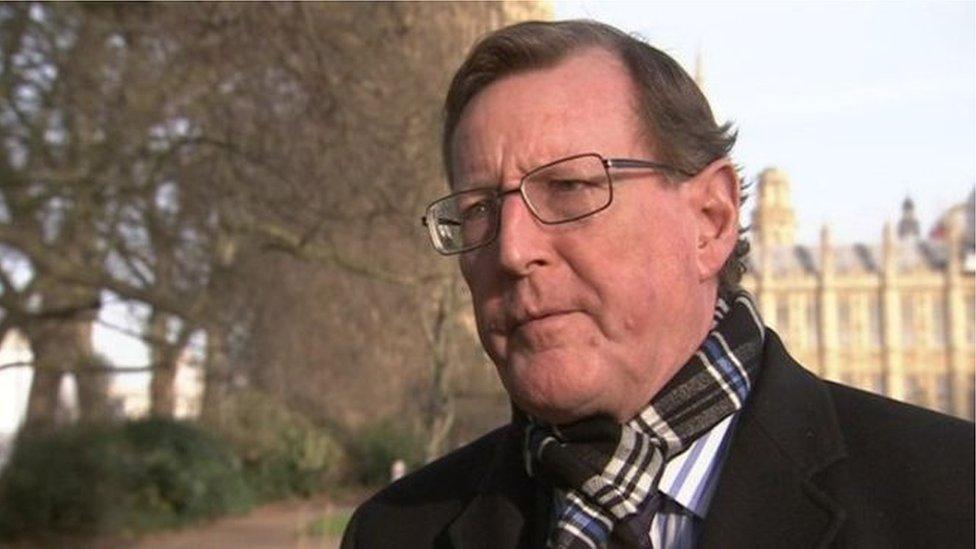
Lord Trimble said the Northern Ireland Assembly could function without an executive
Speaking in the House of Lords on Wednesday, he said Stormont could operate in the same way the Welsh assembly did when it was first formed.
Lord Trimble said this system operated for six or seven years before the assembly decided to move to an executive.
"That assembly could continue to function and it would be able to move to having an executive the moment that the parties that presently won't nominate for an executive shows a willingness to do so," he added.
The political deadlock in Northern Ireland came after a snap election on 2 March brought an end to Stormont's unionist majority and the Democrat Unionist Party's lead over Sinn Féin was cut from 10 seats to one.
Under Northern Ireland's power-sharing agreement, the executive must be jointly run by unionists and nationalists, with the largest party putting forward a candidate for first minister.
The late Martin McGuinness quit as deputy first minister in January in protest against the DUP's handling of a botched green energy scheme.
Sinn Féin has said it will not share power with DUP leader Arlene Foster as first minister until the conclusion of a public inquiry into the Renewable Heat Incentive (RHI) scheme.
Northern Ireland's two biggest parties, the DUP and Sinn Féin, have blamed each other for the failure of talks to date.
- Published26 April 2017
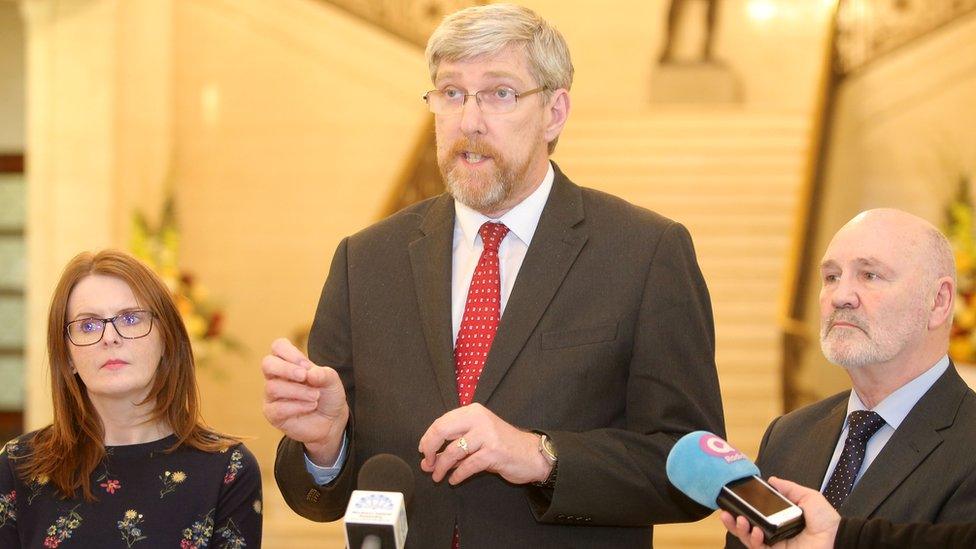
- Published24 April 2017
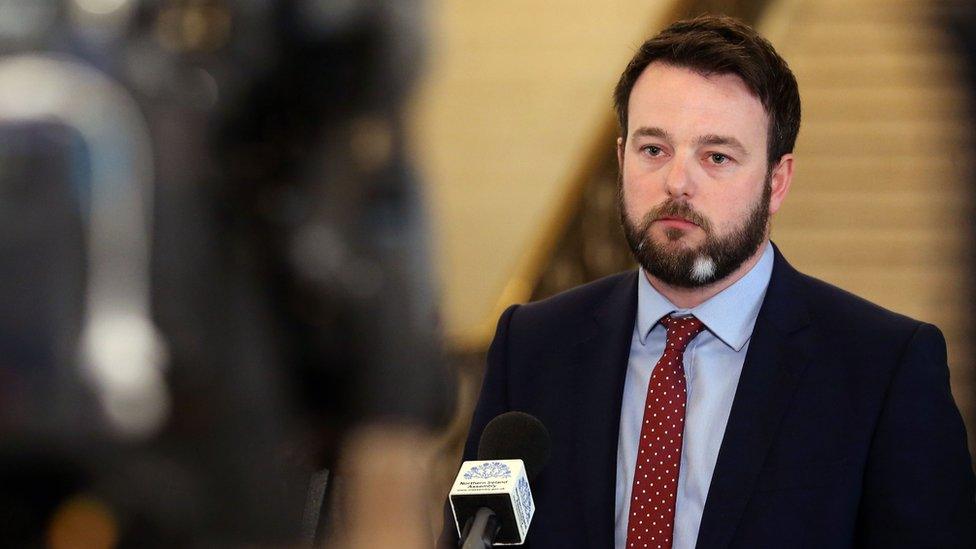
- Published21 April 2017

- Published28 March 2017
